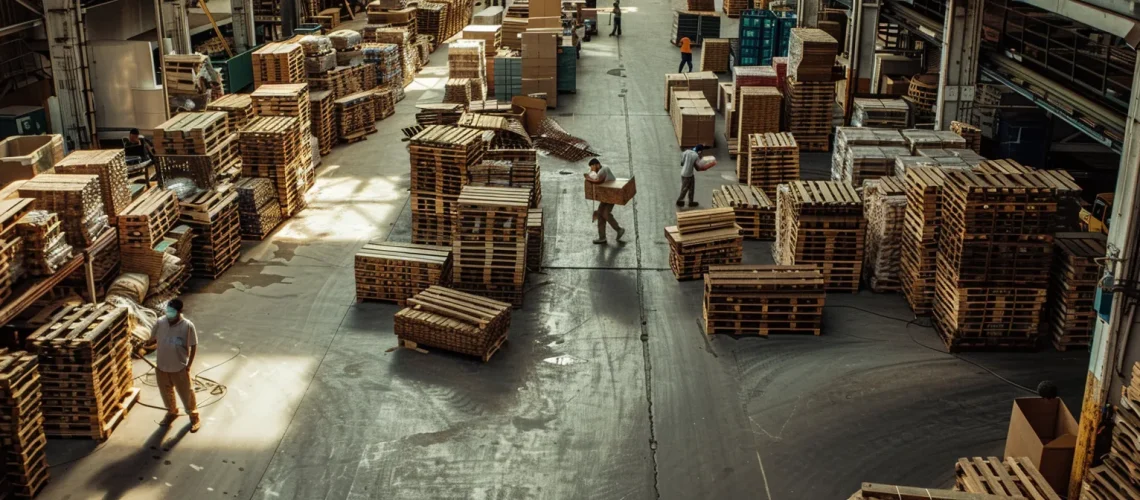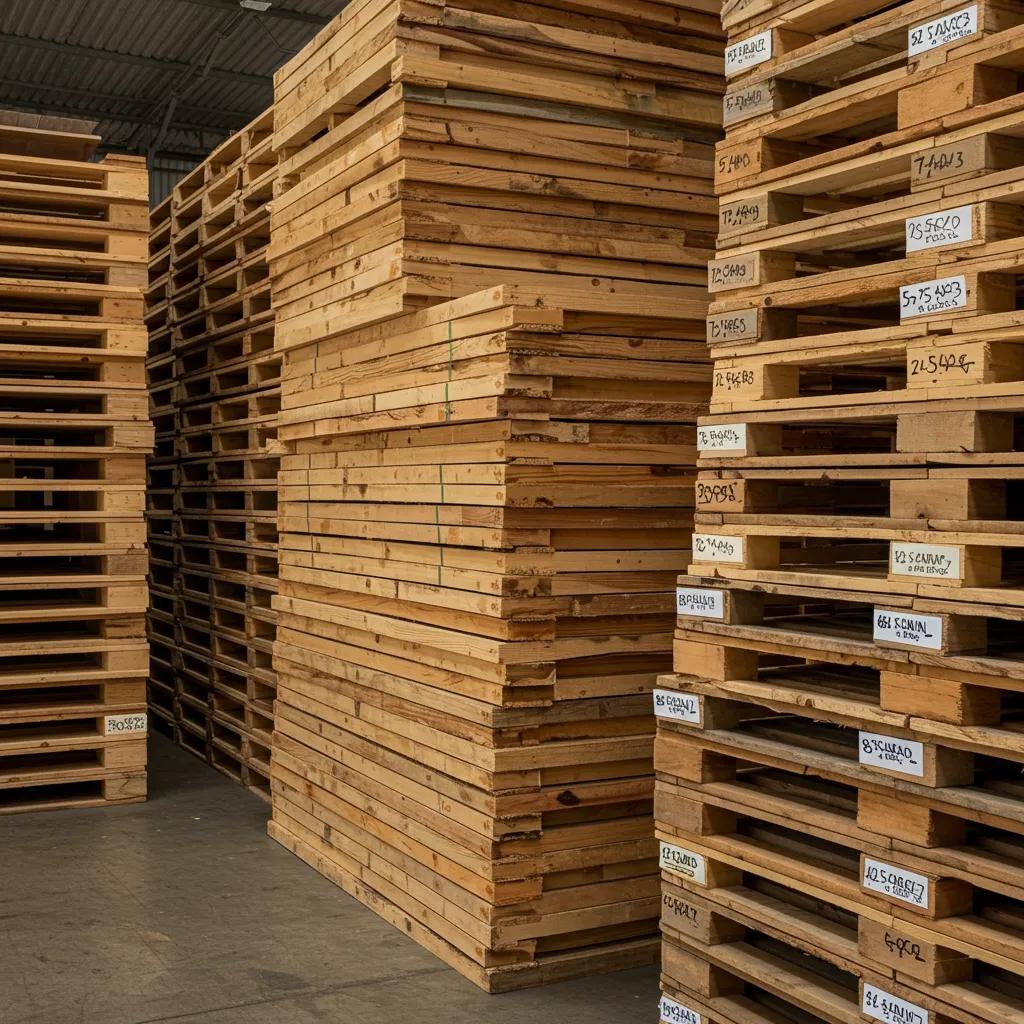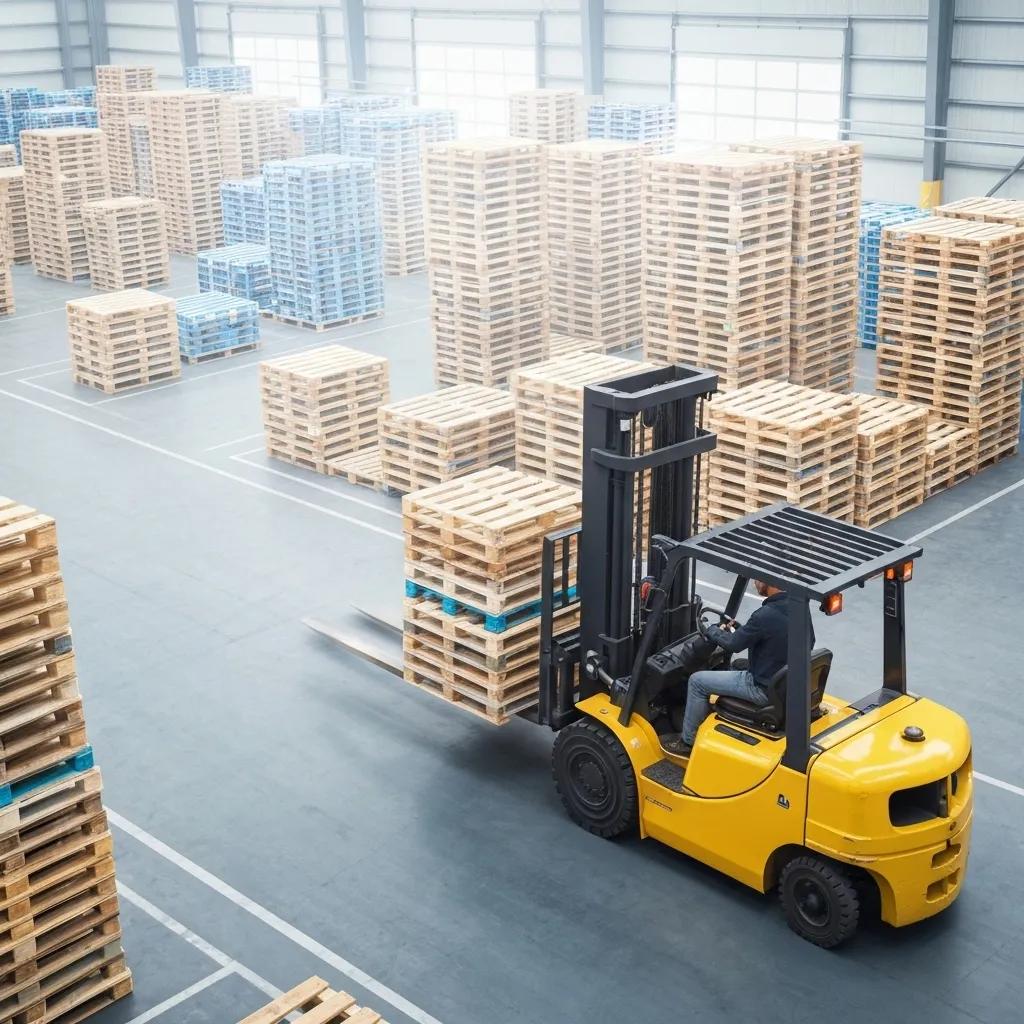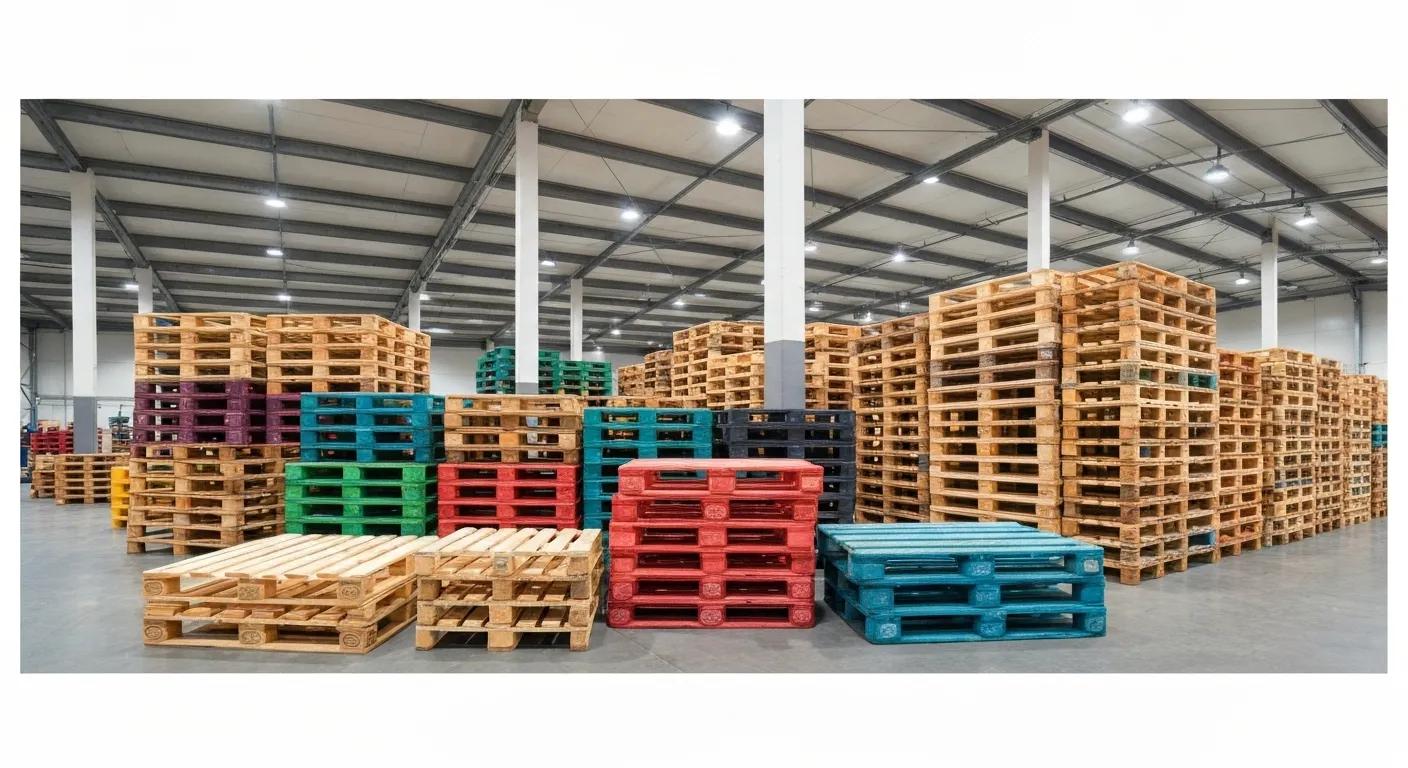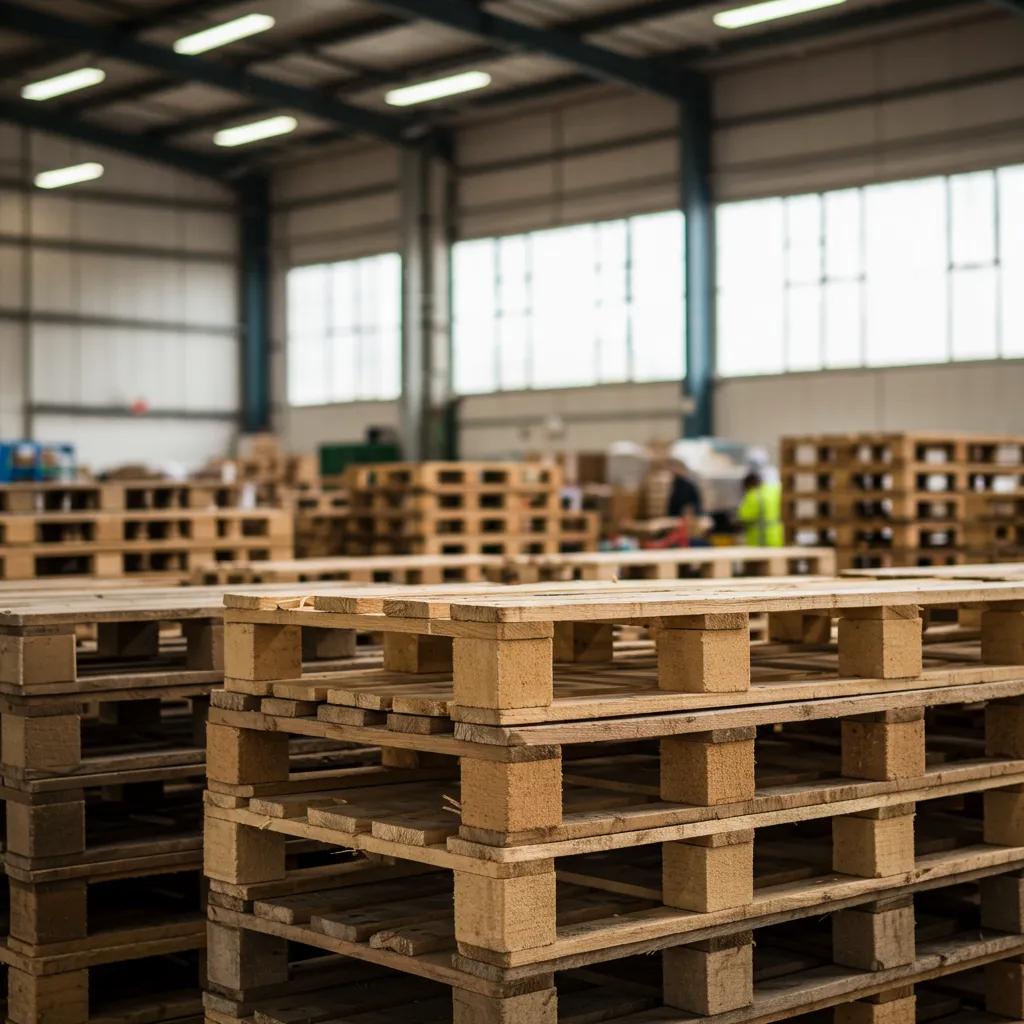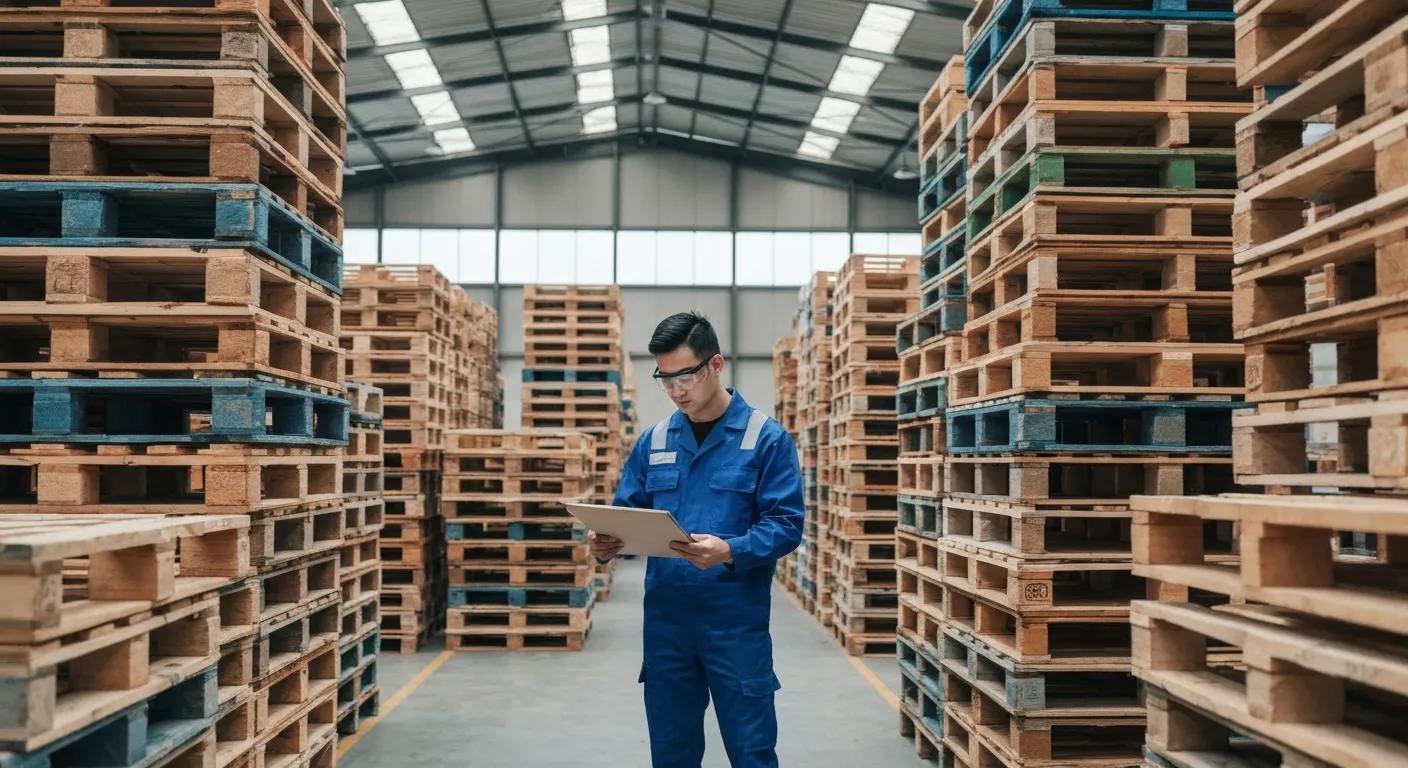The Process of Recycling Quality Pallets at W W Pallets
In today’s environmentally conscious world, recycling pallets is crucial for sustainable business practices. This article delves into W W Pallet’s efficient process of recycling quality pallets, covering collection, inspection, repair, and quality assurance. Readers will gain insights into how W W Pallets contributes to sustainability while providing high-quality recycled pallets for various industries. By understanding this process, businesses can make informed decisions about their pallet needs and support eco-friendly practices in their supply chains.
Key Takeaways
- W W Pallets recycling process conserves resources, reduces waste, and supports sustainable packaging solutions
- The company implements rigorous quality control measures to ensure recycled pallets meet industry standards
- W W Pallets efficient logistics and partnerships contribute to reduced carbon emissions and environmental impact
- The company’s recycling initiatives create local jobs and support the circular economy
- W W Pallets offers cost-effective and eco-friendly pallet solutions for various industries
Understanding the Importance of Recycling Quality Pallets

Recycling quality pallets offers significant environmental and economic benefits. This process conserves raw materials, reduces landfill waste, and supports renewable energy initiatives. Companies can transform used pallets into valuable assets, meeting the growing demand for sustainable packaging solutions. By examining the environmental impact, economic advantages, and sustainability aspects of pallet recycling, businesses can make informed decisions that benefit their brand and the planet.
Identify the Environmental Benefits of Pallet Recycling
Recycling quality pallets significantly reduces environmental issues associated with deforestation and waste management. By reusing and repurposing used pallets, pallet buyers contribute to the conservation of natural resources, particularly timber, which is essential for maintaining ecological balance. This process also minimizes the strain on landfills, as fewer wooden pallets end up in waste facilities.
The environmental benefits extend beyond resource conservation. Recycling pallets reduces the need for new pallet production, thereby decreasing energy consumption and carbon emissions. Additionally, recycled pallets often meet ISPM 15 standards, ensuring they are free from pests and safe for international shipping. This practice helps prevent the spread of invasive species, further protecting ecosystems worldwide:
| Environmental Benefit | Impact |
|---|---|
| Resource Conservation | Reduces deforestation and timber use |
| Waste Reduction | Minimizes landfill waste |
| Energy Savings | Decreases energy needed for new pallet production |
| Ecosystem Protection | Prevents spread of invasive species through ISPM 15 compliance |
Examine the Economic Advantages of Recycling Pallets
Recycling pallets offers significant economic advantages for businesses. Pallet recycling companies can reduce costs by refurbishing and reselling used pallets, including GMA pallets, instead of purchasing new ones. This process allows companies to maximize their resources while minimizing waste, leading to improved profitability and operational efficiency.
The economic benefits extend beyond cost savings. Pallet removal services create new job opportunities in the recycling industry, contributing to local economies. Additionally, businesses that engage in pallet recycling often benefit from improved brand reputation, as consumers increasingly value environmentally responsible practices. This can lead to increased customer loyalty and potentially higher sales for companies that prioritize sustainability.
Learn About the Impact on Sustainability and Resource Conservation
Recycling quality pallets significantly impacts sustainability and resource conservation efforts. By reusing and refurbishing pallets, companies reduce the demand for new timber, contributing to environmental protection and moving towards net zero emissions goals. This practice also extends the lifespan of existing unit loads, minimizing waste and maximizing resource efficiency in warehouses and supply chains.
The impact of pallet recycling extends beyond individual businesses. As more companies adopt sustainable practices, the industry as a whole moves closer to achieving circular economy principles. Businesses interested in implementing pallet recycling programs can request a quote from specialized providers to assess potential benefits and contribute to broader sustainability initiatives.
Step-by-Step Process of Collecting Used Pallets
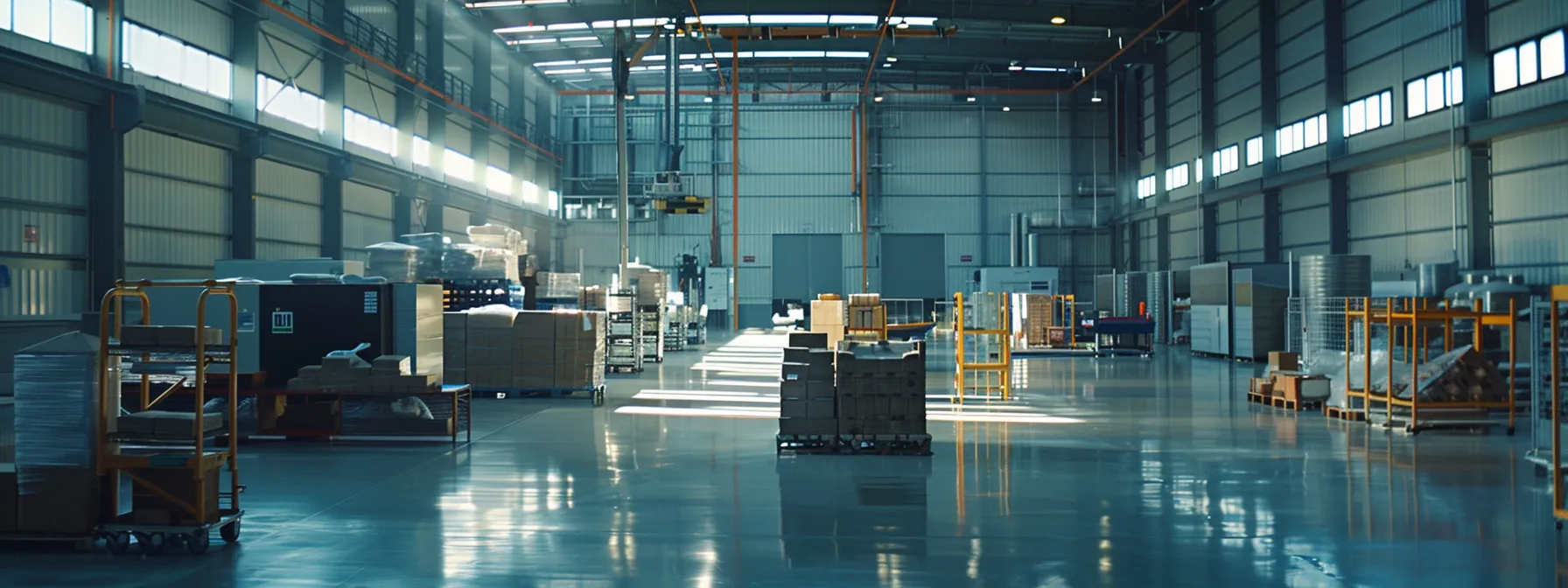
W W Pallets used pallet collection process involves three key steps. First, establishing quality inspection criteria ensures only suitable pallets are recycled. Second, efficient logistics streamline the collection methods. Finally, suppliers play a crucial role in providing used pallets. This process helps manage inventory, reduce carbon footprint, and explores potential for cardboard and corrugated material recycling alongside composting efforts.
Gather Quality Inspection Criteria for Used Pallets
W W Pallets implements rigorous quality inspection criteria for used pallets to ensure optimal supply chain management and sustainable packaging practices. The company’s technicians assess each pallet’s structural integrity, checking for damage, loose nails, and signs of wear that could compromise its functionality in logistics operations.
The inspection process incorporates advanced technology to streamline used pallet recycling and maintain high standards. W W Pallets quality criteria include:
- Structural soundness evaluation
- Moisture content measurement
- Pest infestation checks
- Compliance with industry standards
- Assessment of pallet wood quality for potential reuse
Understand the Logistics of Pallet Collection Methods
W W Pallets employs efficient logistics for pallet collection, minimizing carbon footprint and greenhouse gas emissions. The company strategically plans routes to reduce fuel consumption and pollution during the collection process. This approach allows businesses to purchase used pallets while contributing to environmental sustainability.
The collection methods involve coordinated pickup schedules and strategically located collection points. W W Pallets logistics team optimizes these processes to ensure timely collection and reduce transportation costs. The collected pallets are then sorted for recycling, reuse, or repurposing into products like bedding, further minimizing waste:
- Route optimization for reduced emissions
- Scheduled pickups from partner businesses
- Strategically located collection points
- Efficient sorting and processing of collected pallets
- Repurposing options for non-reusable pallets
Assess the Role of Suppliers in Providing Used Pallets
Suppliers play a crucial role in providing used pallets to W W Pallets, contributing to the company’s resource efficiency and sustainability efforts. These suppliers, which may include warehouses, distribution centers, and manufacturing facilities, help W W Pallets maintain a steady stream of quality used pallets for recycling and resale. By partnering with reliable suppliers, W W Pallets can offer customers the opportunity to buy used pallets at competitive prices while reducing waste in the supply chain.
W W Pallets supplier network extends beyond traditional wooden pallet sources to include providers of plastic pallets and even animal bedding materials. This diverse supplier base allows the company to maximize its recycling capabilities and offer a wide range of pallet options to meet customer needs. The process of sourcing used pallets from suppliers involves:
- Establishing partnerships with local businesses
- Implementing quality control measures at supplier locations
- Coordinating regular pickup schedules
- Providing supplier training on proper pallet handling and storage
- Offering incentives for high-quality used pallet contributions
Inspection and Sorting of Recycled Pallets
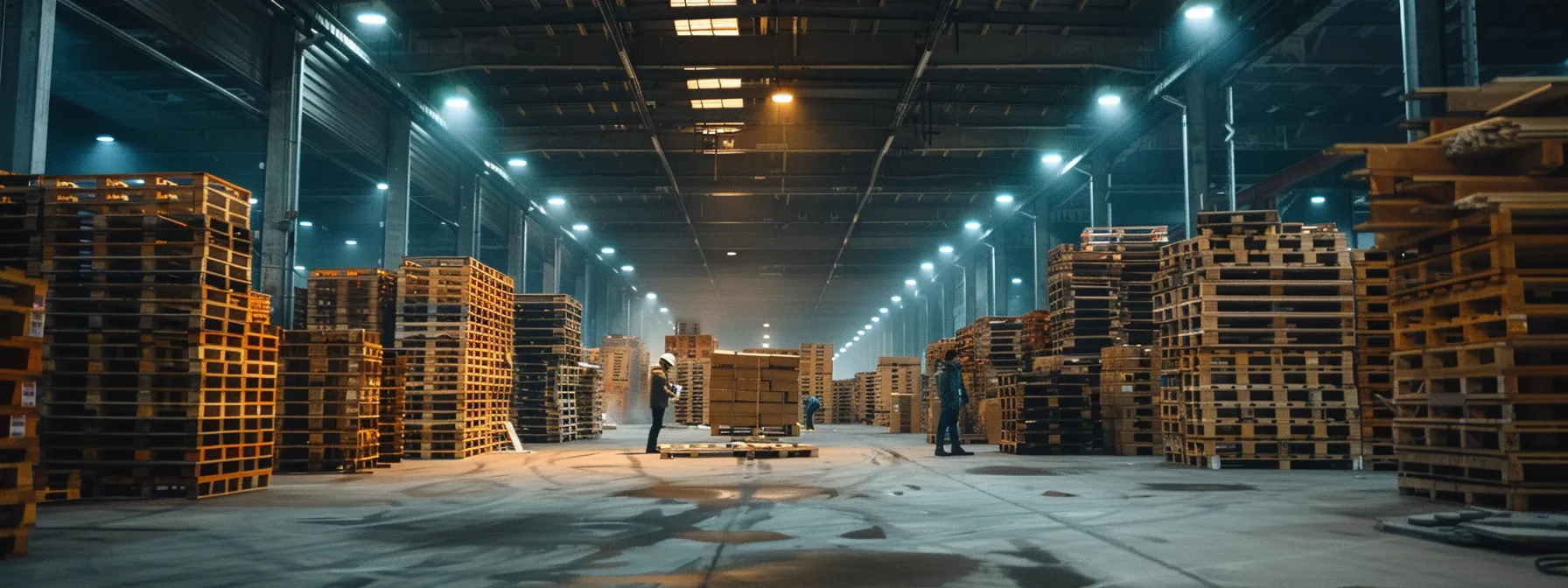
W W Pallets inspection and sorting process ensures sustainability and quality in recycled pallet management. This crucial step differentiates reusable pallets from damaged ones, applying strict quality assessment criteria. Efficient sorting techniques, including machine-assisted methods, optimize the process. These practices contribute to reducing climate change impacts while providing customers with reliable, eco-friendly pallet solutions. The sorted wood waste is often repurposed into mulch, further enhancing the company’s commitment to sustainability.
Differentiate Between Reusable and Damaged Pallets
W W Pallets employs a rigorous inspection process to differentiate between reusable and damaged pallets. Technicians carefully examine each pallet for structural integrity, checking for loose boards, protruding nails, and signs of rot or infestation. This meticulous approach ensures that only high-quality used pallets are selected for resale, reducing waste and preventing unusable pallets from ending up in landfills.
The company’s efficient pallet pickup service collects both reusable and damaged pallets from various locations across the landscape. Reusable pallets are cleaned, repaired if necessary, and made available as used pallets for sale. Damaged pallets that cannot be repaired are responsibly recycled, with wood waste often repurposed into mulch or other products, further minimizing environmental impact.
Explore the Criteria for Quality Assessment of Pallets
W W Pallets employs strict quality assessment criteria for recycled pallets, ensuring only the best used wooden pallets and used plastic pallets for sale reach customers. The inspection process evaluates structural integrity, weight capacity, and dimensional accuracy of each pallet. Technicians meticulously check for damage, including cracks, splits, or missing boards in wooden pallets, and warping or stress fractures in plastic pallets.
The company’s quality assessment also includes checks for metal contamination, which can interfere with automated handling systems. W W Pallets uses advanced detection equipment to identify any metal objects embedded in the pallets, ensuring safe and efficient use in various industries. This comprehensive inspection process guarantees that all recycled pallets meet or exceed industry standards for safety and performance.
Learn About the Sorting Techniques Used in the Process
W W Pallets employs advanced sorting techniques to efficiently process recycled pallets. The company utilizes a combination of manual inspection and automated systems to categorize pallets based on their condition and potential for reuse or upcycling. Forklifts transport pallets through various sorting stations, where trained personnel assess each unit for quality and suitability for different applications.
The sorting process at W W Pallets aims to maximize resource efficiency and minimize waste. Pallets that meet quality standards are directed towards reuse or repair, while those unsuitable for transportation are designated for upcycling or recycling. This comprehensive approach supports the company’s commitment to zero waste initiatives and sustainable pallet management:
| Sorting Category | Action |
|---|---|
| High-quality pallets | Cleaned and resold |
| Repairable pallets | Refurbished for reuse |
| Damaged pallets | Recycled or upcycled |
| Non-standard pallets | Assessed for custom applications |
The Repair and Refurbishment of Pallets
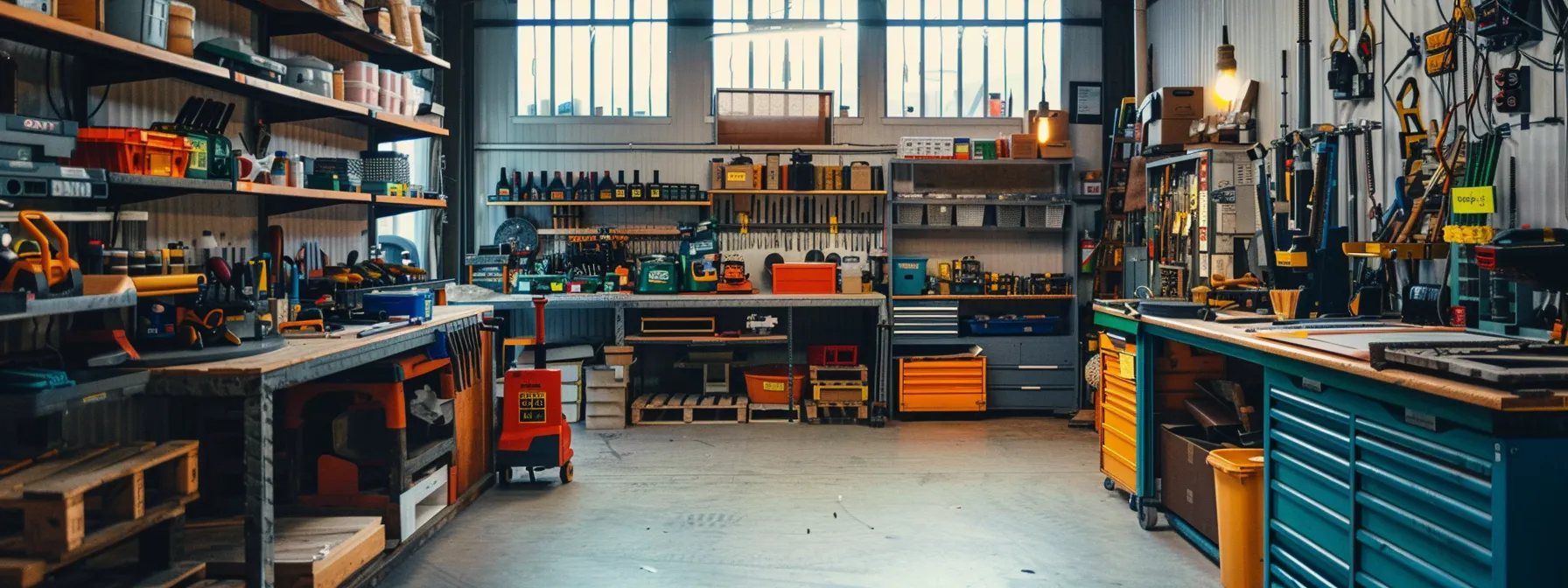
W W Pallets repair and refurbishment process ensures the longevity and safety of recycled pallets. This section explores effective methods for repairing damaged pallets, reviews essential tools and equipment for refurbishment, and highlights the importance of quality testing post-repair. By addressing issues like pest infestation, mold growth, and structural integrity, W W Pallet maintains strict quality control standards, providing reliable pallets for various industries, including furniture manufacturing.
Discover Methods for Repairing Damaged Pallets
W W Pallets employs effective methods for repairing damaged pallets, reducing the company’s ecological footprint and maintaining its reputation for quality. The plant utilizes specialized techniques to address common issues such as broken boards, loose nails, and structural damage, ensuring that repaired pallets meet industry standards for safety and durability.
The company’s repair process involves careful inspection and targeted fixes, allowing W W Pallet to offer high-quality used wood pallets for sale. By refurbishing damaged pallets, the company extends their lifespan, minimizing waste and providing cost-effective solutions for businesses seeking reliable packaging materials:
| Damage Type | Repair Method |
|---|---|
| Broken boards | Board replacement |
| Loose nails | Re-nailing or nail replacement |
| Structural damage | Reinforcement or component replacement |
| Surface contamination | Cleaning and sanitization |
Review Tools and Equipment Required for Refurbishment
W W Pallets utilizes specialized tools and equipment for pallet refurbishment, contributing to efficient waste management practices in the manufacturing industry. The company’s refurbishment process employs industrial-grade nail guns, sanders, and saws to repair and restore pallets, ensuring they meet quality standards for reuse in various sectors, including lumber and paint production.
To support circular economy initiatives, W W Pallets invests in advanced machinery such as automated pallet dismantlers and board removers. These tools streamline the refurbishment process, allowing the company to process large volumes of pallets efficiently while minimizing material waste and maximizing the reuse of salvageable components.
Understand the Significance of Quality Testing After Repairs
W W Pallets conducts rigorous quality testing after repairs to ensure recycled plastic pallets meet industry standards and customer expectations. This critical step enables the company to maintain its reputation for delivering reliable logistics solutions while maximizing revenue from refurbished pallets. By implementing thorough quality checks, W W Pallets verifies the structural integrity and functionality of each repaired pallet, reducing the risk of failures in the supply chain.
The quality testing process at W W Pallets contributes to the circular economy by extending the lifespan of pallets and minimizing waste. Technicians subject repaired pallets to load-bearing tests, dimensional checks, and visual inspections to confirm their suitability for reuse in various industries. This comprehensive approach ensures that recycled pallets perform as efficiently as new ones, providing cost-effective and sustainable solutions for businesses:
- Load-bearing capacity tests
- Dimensional accuracy checks
- Visual inspections for defects
- Compliance verification with industry standards
- Performance simulations in real-world conditions
Final Preparation and Quality Assurance for Pallets
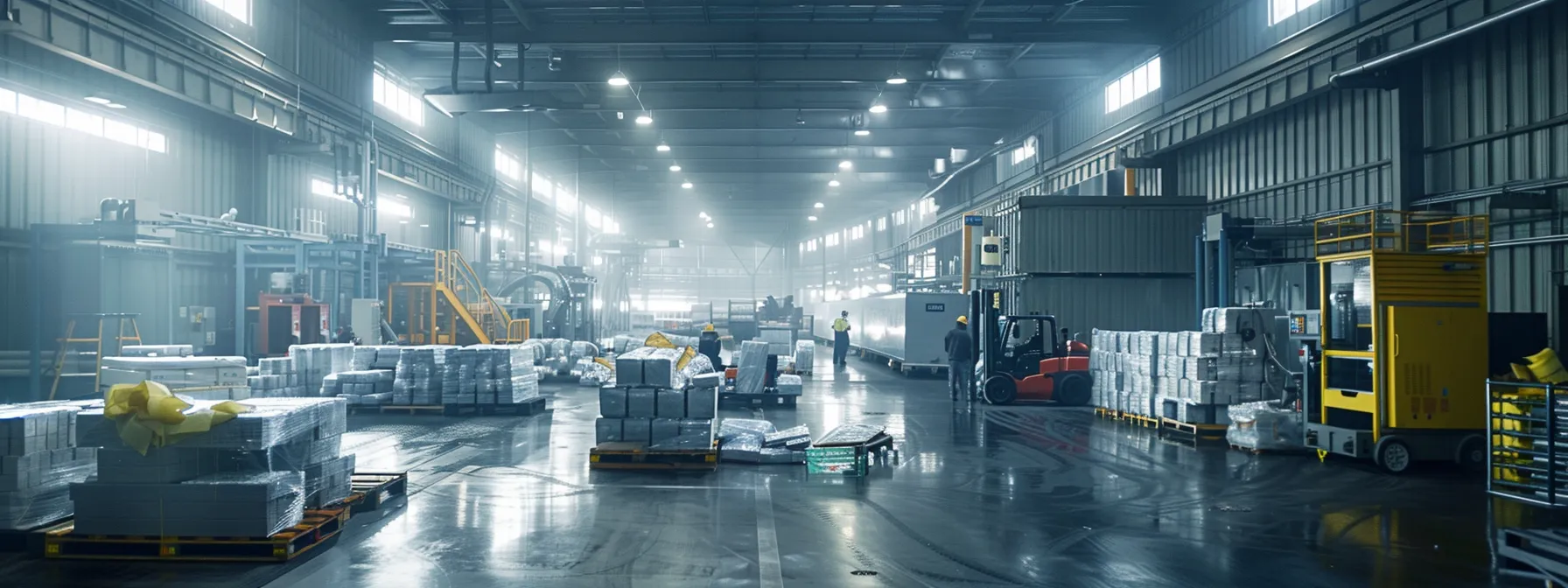
W W Pallets final preparation and quality assurance processes ensure recycled pallets meet strict standards before re-entering the supply chain. This section explores packaging methods, quality control practices, and the importance of consistency in pallet recycling. From stretch wrap application to remanufacturing procedures, W W Pallets comprehensive approach guarantees reliable products for customers. contact us to learn more about our pallet collection and recycling services.
Discuss Packaging Processes for Recycled Pallets
W W Pallets implements rigorous packaging processes for recycled pallets to ensure regulatory compliance and efficient energy management. The company utilizes stretch wrap and banding techniques to secure stacks of refurbished pallets, protecting them during transportation and storage. This process not only safeguards the pallets but also optimizes space utilization in warehouses and shipping containers.
The packaging procedures at W W Pallets extend beyond traditional pallet preparation to include crate assembly for specialized shipping needs. The company’s commitment to sustainability is evident in its use of biofuel-powered equipment for packaging operations, reducing carbon emissions while maintaining high productivity. W W Pallets comprehensive approach to packaging recycled pallets ensures quality and reliability for customers across various industries:
- Stretch wrap application for pallet stability
- Banding techniques for secure stacking
- Crate assembly for specialized shipments
- Biofuel-powered packaging equipment
- Space optimization for efficient storage and transport
Identify Quality Assurance Practices for Finished Products
W W Pallets implements rigorous quality assurance practices for finished products, ensuring each recycled pallet meets industry standards. Technicians meticulously inspect fasteners, including nails and screws, to verify secure attachment and prevent potential hazards during use. This thorough examination process helps reduce carbon dioxide emissions by extending pallet lifespan and minimizing the need for frequent replacements.
The company’s quality control measures include weight testing using pallet jacks to simulate real-world conditions. W W Pallets also conducts moisture content assessments on wood components to prevent warping or mold growth, ensuring optimal performance and longevity. These comprehensive checks minimize the risk of pallet disposal due to premature failure, supporting sustainable supply chain practices.
Learn Why Consistency Is Key in Pallet Recycling
Consistency in pallet recycling is crucial for maintaining operational efficiency and meeting the standards set by the United States Environmental Protection Agency. W W Pallets ensures uniform quality across all recycled pallets, guaranteeing reliable packaging solutions for various industries. This consistency allows businesses to streamline their supply chain processes and reduce costs associated with pallet replacement.
By maintaining a consistent approach to pallet recycling, W W Pallets optimizes resource utilization, including wood and paper materials. This standardized process enables the company to offer competitive pricing for recycled pallets while adhering to environmental regulations. Consistent quality control practices ensure that each pallet meets the same high standards, providing customers with dependable packaging solutions for their products.
How W W Pallets Contributes to Sustainable Practices
W W Pallets commitment to wood pallet recycling showcases innovation in sustainable practices. The company’s environmentally friendly initiatives benefit local communities, support economies, and forge partnerships to enhance recycling efforts. By reducing deforestation and promoting efficient resource use, W W Pallets demonstrates how recycling can positively impact both business and the environment.
Explore Community Benefits of Pallet Recycling Initiatives
W W Pallets recycling initiatives offer significant community benefits, including reduced landfill waste and increased local employment opportunities. The company’s pallet pick up service not only helps businesses manage their used plastic pallets efficiently but also contributes to the local economy by creating jobs in the recycling sector. This sustainable approach transforms waste into a renewable resource, benefiting both the environment and the community.
The cost-effective nature of W W Pallets recycling program allows businesses to save money while participating in environmentally friendly practices. By offering affordable solutions for pallet management, including the recycling of corrugated pallets, W W Pallets encourages wider adoption of sustainable practices across various industries. This collaborative effort between the company and local businesses fosters a sense of environmental responsibility within the community:
| Community Benefit | Impact |
|---|---|
| Waste Reduction | Decreased landfill usage |
| Job Creation | Increased local employment |
| Cost Savings | Reduced expenses for businesses |
| Environmental Awareness | Promoted sustainable practices |
Understand How W W Pallets Supports Local Economies
W W Pallets supports local economies by creating jobs in the recycling industry and promoting resource efficiency. The company’s operations, including water conservation efforts and heat treating processes, contribute to the local economic ecosystem. By offering cost-effective pallet solutions, W W Pallet helps businesses save money, which can be reinvested in the community.
The company’s production of pellet fuel from recycled wood waste provides an additional revenue stream and supports sustainable energy initiatives. This diversification not only strengthens W W Pallet’s economic impact but also offers local businesses and residents access to affordable, renewable heating options. By transforming waste into valuable products, W W Pallet demonstrates how sustainable practices can drive economic growth and environmental stewardship simultaneously.
Review Partnerships That Enhance Recycling Efforts
W W Pallets forms strategic partnerships with local businesses and organizations to enhance its recycling efforts. These collaborations enable the company to expand its reach, collect a greater volume of used pallets, and implement more efficient recycling processes. By working closely with manufacturers, distributors, and retailers, W W Pallet ensures a steady supply of recyclable materials while helping partners reduce their waste management costs.
The company also partners with environmental organizations and government agencies to stay informed about the latest recycling technologies and sustainability practices. These relationships allow W W Pallets to continually improve its recycling methods, ensuring compliance with regulations and maximizing the environmental benefits of its operations. Through these partnerships, W W Pallet demonstrates its commitment to sustainable business practices and contributes to broader environmental conservation efforts in the community.
Conclusion
W W Pallets comprehensive approach to recycling quality pallets demonstrates a strong commitment to sustainability, resource conservation, and economic efficiency. Through rigorous inspection, sorting, and refurbishment processes, the company ensures that recycled pallets meet high standards of quality and safety for various industries. By implementing advanced technologies and forming strategic partnerships, W W Pallets maximizes the environmental benefits of pallet recycling while supporting local economies and reducing waste. The company’s dedication to sustainable practices not only benefits businesses through cost-effective solutions but also contributes significantly to environmental conservation efforts, setting a benchmark for responsible pallet management in the industry.

